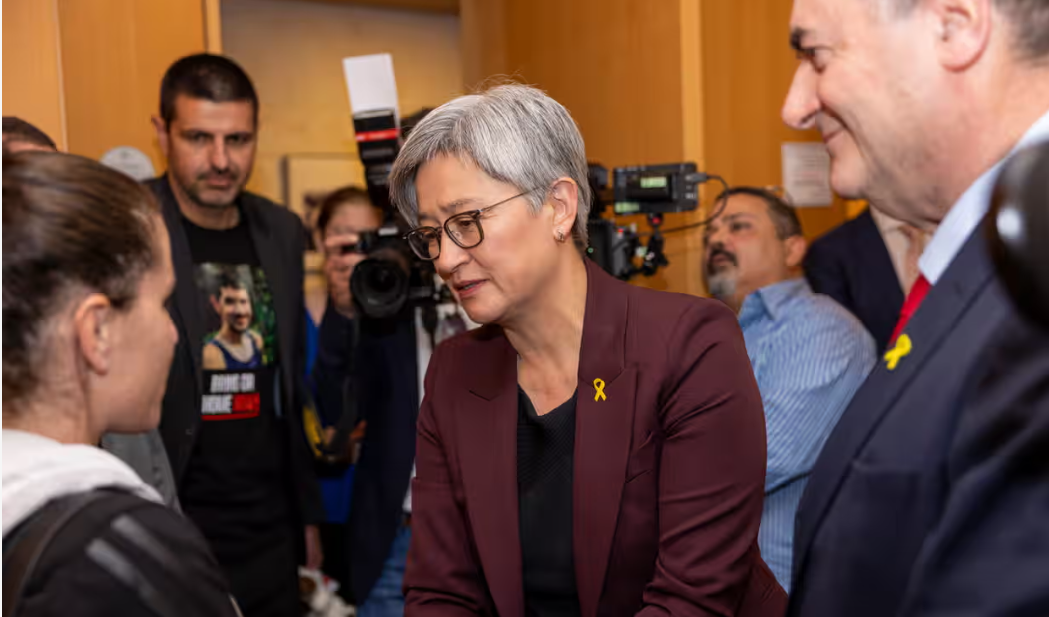Published: 13 June 2023
Last updated: 5 March 2024
SIDRA KRANZ MOSHINSKY assesses a new program aimed at countering antisemitism in Victoria’s schools.
Well-intentioned efforts to counter the global increase in antisemitic incidents are being introduced from the White House to the United Nations.
In Australia, these global trends are being played out locally, spurring new efforts from both the Jewish community and governments to counter antisemitism in our schools.
A new series of online videos is now available via the Department of Education’s ARC website, which provides learning and teaching resources to Victorian teachers.
The antisemitism training program was spurred in part by the disturbing allegations of antisemitic speech and culture over a number of years at Brighton Secondary College. Five former students are suing the school and the state of Victoria for negligence and failing to protect them from racial discrimination.
On one hand, we need to contextualise this for what it is (one school) and, on the other hand, recognise it as exemplifying a concerning escalation of antisemitism in our neighbourhood. Who would have thought our students would be dealing with this here and now?
Australia has a fine record of offering Jewish students free and quality education in a multicultural setting through the public school system.
Many prominent members of our community arriving in Melbourne as children immediately after World War II were fortunate to receive a state school education that assured them a place at university and, from there, entry into their chosen professions. Well into their seventies and eighties, they speak in glowing terms of Melbourne High, MacRobertson Girls’ High, Princes Hill and other state schools.
The Brighton Secondary case is still before the courts but whatever the outcome, it is already having a ripple effect that extends well beyond the lives of the individual students and families involved, beyond the particular school gates and beyond the legal system.
In a sign that the government is taking notice and seeking to be responsive, an independent report was commissioned by the Victorian Department of Education. It made various recommendations, including that there be training for state schools in dealing with antisemitism.
As a result, a program was developed between the Department and the Jewish Community Council of Victoria (JCCV), in partnership with the Jewish Museum of Australia and the Ark Centre.
Recently released, this online and free program consists of seven videos and is aimed at teachers, exploring the nature of antisemitism, its impact and how it is best addressed.
It is very different in purpose and approach from whatever education teachers may offer students about antisemitism (including the Holocaust) in their classrooms. This program targets expressions of antisemitism within the school itself.
The videos range in length from three to nine minutes and include a brief history of antisemitism, the Australian Jewish story and understanding antisemitism today. Importantly, two videos take us from the macro to the micro, featuring student voices. Lily and Alex, students at state secondary schools and members of the JVoice team, reflect on Jewish identity, culture and antisemitism. Another segment provides a personal and communal insight into the intergenerational impacts of antisemitism from Rabbi Gabi Kaltmann.
Each video is accompanied by resources to support further learning and questions to prompt individual or group reflection, with dot points indicating to the viewer what they will learn from the training.
The purpose of the series is to better equip schools to understand and respond to antisemitism. Situated within the Multicultural, Civics and Refugee Support area of the department, it is designed to foster the intercultural capability of the curriculum. Teachers can elect to undertake the training as part of their professional learning and schools with large Jewish student populations can be directed to do it.
In theory, the availability of these training modules should lead to better outcomes for Jewish students in terms of safety, mental health and wellbeing, while bolstering respect for all cultures and a willingness to speak out against all forms of bullying, racism and discrimination.
It is certainly desirable that schools take up the antisemitism program. We know that young people are encountering antisemitism on social media, when they play sport, on the streets, as well as in some schools, sometimes.
This series has the potential to provide school staff with the understanding of the specificities of antisemitism, when and why it hurts, coupled with the confidence and impetus to call it out.
But its biggest challenge comes from the context in which schools are already battling. We need to recognise that antisemitism is only one of many challenges today’s schools and students face.
For students, the real and virtual worlds can be unrelenting in their deluge of words, images, challenges (and delights) to be navigated. The expectations on teachers to address all these inputs are growing exponentially.
The question is whether schools will buy into this program, and in particular, whether they will do so before they have a significant problem.
If the program is not taken up, or if its recommendations are not taken on, it risks merely taking its place among the countless digital training series on offer to our tired teachers called on to deal with yet another of society’s woes.
Photo: Exhibit displayed in short video presented by the Jewish Museum of Australia, used by the Victorian Department of Education.




